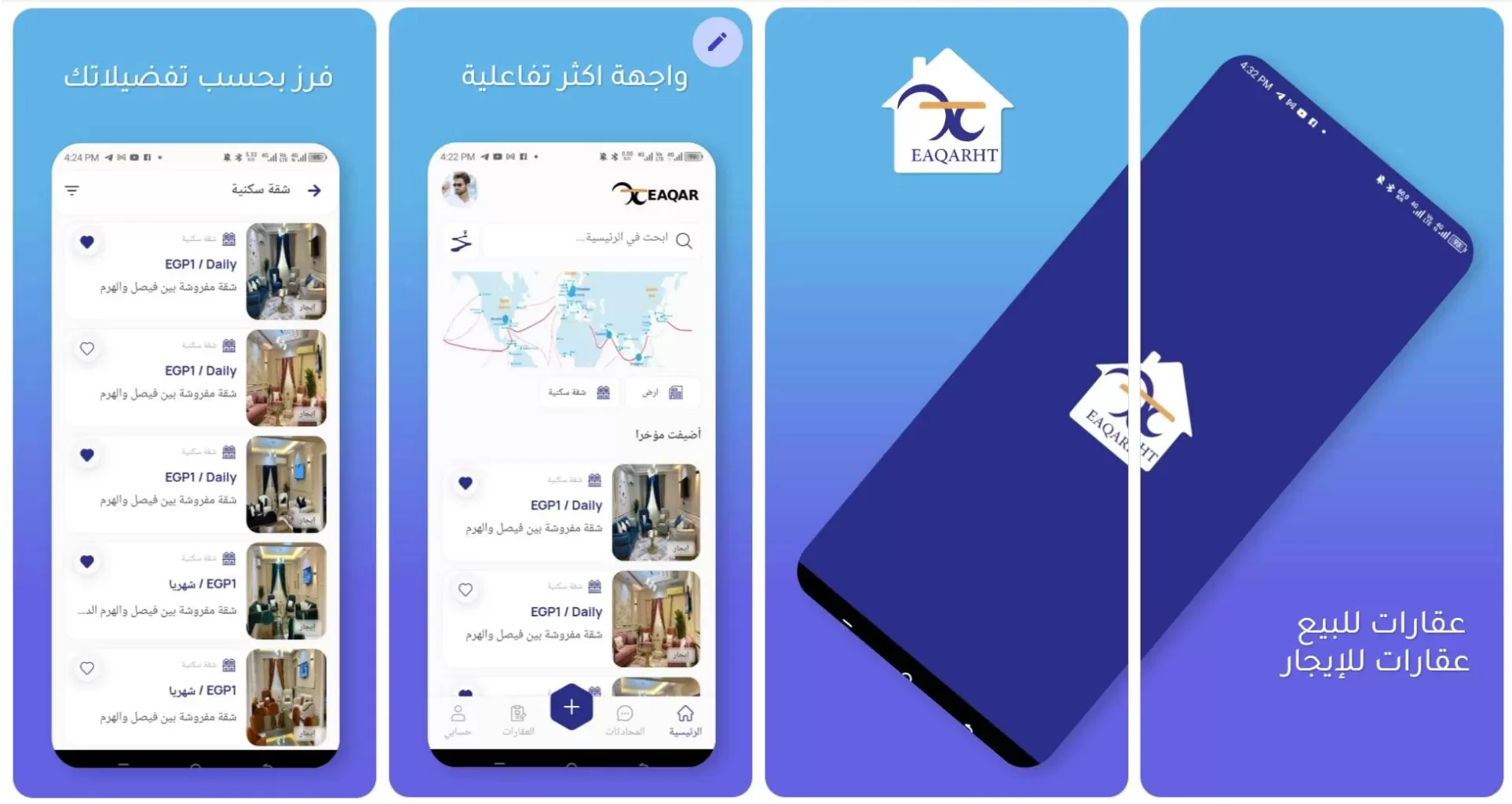- Phone: +201112227016
- Email: info@weiihou.com
11:00 AM - 11:00 PM

Eaqar HT Mobile Application
Detailed Stages of Programming and Developing the HT Real Estate Mobile Application Using the Flutter Framework:
Phase 1: Planning and Analysis
- Requirements Analysis:
- Define the application's goals and functions (such as displaying properties, searching for properties, adding new properties, communicating with brokers, managing user accounts).
- Identify the target audience (buyers, tenants, brokers, etc.).
- Analyze competitors and other real estate applications.
- User Experience (UX) and User Interface (UI) Design:
- Create wireframes to define screen layouts and user flow.
- Design an attractive and user-friendly interface, considering the application's visual identity.
- Design a seamless and responsive user experience across different devices.
- Database Planning:
- Design the database schema to store property data, users, brokers, bookings, etc.
- Choose the appropriate database management system (such as Firebase Firestore).
- Technology Selection:
- Choose the appropriate Flutter version.
- Identify the required additional packages and libraries.
- Define the required backend services (such as Firebase).
Phase 2: Programming and Development
- Development Environment Setup:
- Install Flutter and set up the database.
- Set up a version control system (such as Git).
- Frontend Development:
- Create screens and interfaces using Flutter.
- Implement the application's business logic, such as searching for and displaying properties and managing bookings.
- Apply responsive design to ensure the application works on various devices.
- Backend Development:
- Create APIs if necessary.
- Connect to databases and process data using Firebase.
- Develop a user management and authentication system.
- Service Integration:
- Integrate map services to display property locations.
- Integrate SMS and email services for user communication.
- Integrate cloud storage services to store property images.
- Functionality Testing:
- Test all application functions to ensure they work correctly.
- Conduct security tests to ensure user data protection.
- Test application compatibility with different devices and operating systems.
Phase 3: Deployment and Maintenance
- Application Deployment:
- Publish the application on app stores (such as Google Play and the App Store).
- Set up SSL certificates to secure the connection.
- Maintenance and Support:
- Monitor application performance and fix any errors.
- Update the application and add new features as needed.
- Provide technical support to users.
- Perform regular data backups.
- Application Store Optimization (ASO):
- Optimize the application description and keywords to increase its visibility in app store search results.
- Obtain positive user reviews.
